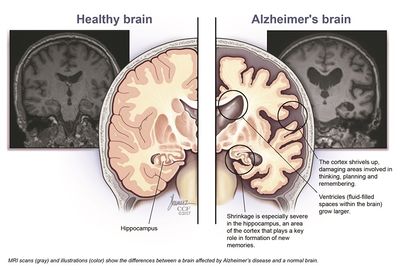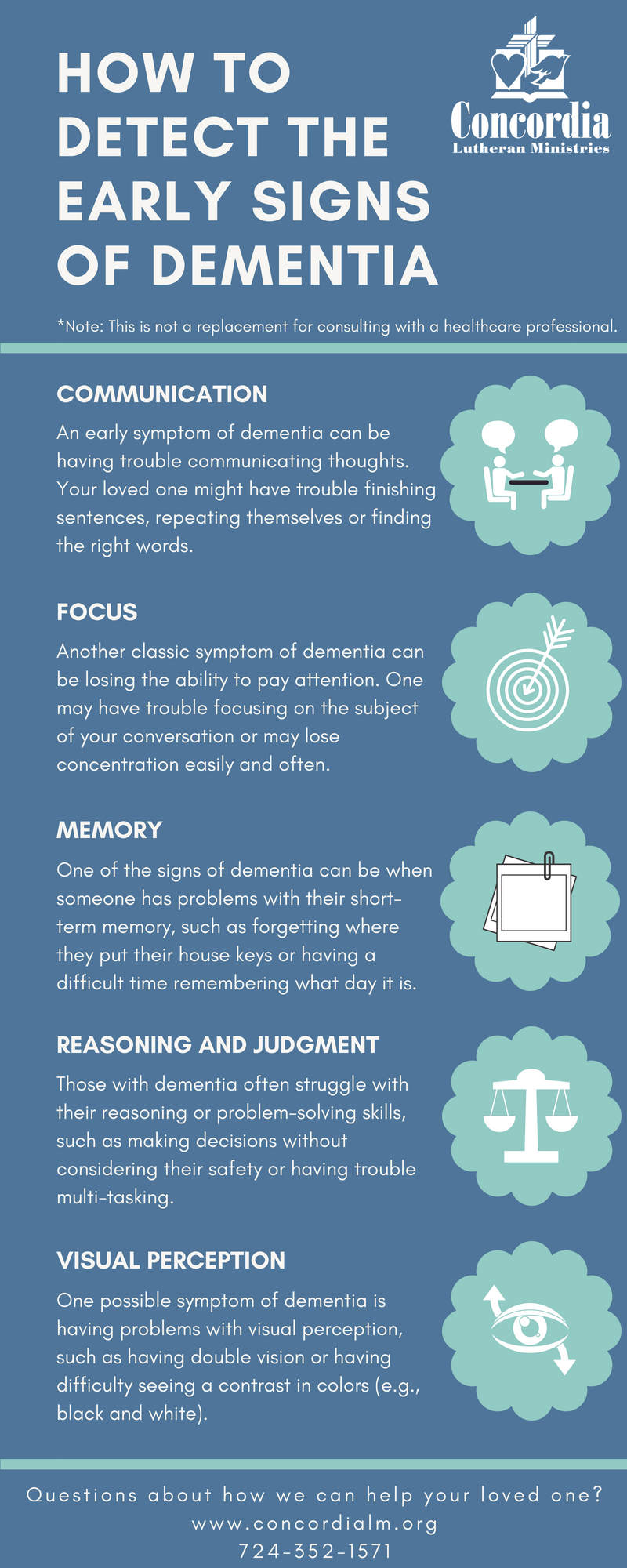The Role of Blood Pressure Management in Preventing Vascular Dementia
The Role of Blood Pressure Management in Preventing Vascular Dementia
Blog Article
Comprehending the Effect of Dementia on Daily Life and Caregiving
Mental deterioration impacts every day life in profound methods, impacting not simply those identified but likewise their caregivers. As cognitive decline proceeds, you could see adjustments in communication and regular that challenge both events. Comprehending these changes is necessary for maintaining dignity and involvement. However exactly how do you adjust your caregiving methods to sustain a person traversing this facility journey? The solutions might shock you as we explore the subtleties of this experience.
The Stages of Mental Deterioration and Their Effects on Daily Life
As you navigate the journey of mental deterioration, recognizing its phases can considerably affect just how you take care of daily life. Dementia commonly proceeds via 3 major phases: early, middle, and late.
Throughout the center phase, you'll experience extra recognizable cognitive decline. Daily tasks may end up being challenging, and maintaining your independence might need modifications. Using pointers and streamlining your atmosphere can assist.
In the late stage, people typically need significant assistance with day-to-day tasks. Planning for care comes to be necessary, focusing on comfort and lifestyle. By understanding these stages, you're far better furnished to respond proactively, guaranteeing you or your liked one can browse the difficulties with self-respect and poise.

Adjustments in Communication and Social Communication
Just how do adjustments in communication influence your day-to-day interactions as mental deterioration advances? As mental deterioration developments, you could notice that simple conversations end up being challenging. Words might escape you, or you might struggle to discover the appropriate expressions. This can bring about disappointment for both you and your liked ones. Nonverbal signs, like gestures or faces, end up being significantly vital.
You might discover it much easier to connect through these ways rather of counting exclusively on talked language. Listening skills can additionally alter; you might locate it more challenging to follow discussions or bear in mind what was just said (Fall Risk). This can result in misunderstandings or sensations of seclusion
Encouraging patience and creating a supportive environment can aid. Participating in activities that cultivate link, like music or art, can boost social interactions. Remember, maintaining connections is still possible; it's nearly adapting to new means of communicating.
Effect on Daily Routines and Activities
While navigating day-to-day regimens, you'll likely discover that jobs you once completed effortlessly ended up being extra challenging as mental deterioration advances. Simple activities like food preparation, dressing, or also showering might require more time and effort. You might discover on your own forgetting steps in familiar routines or having a hard time to remember where you positioned products. This can bring about frustration not just for you, yet also for those around you.
Preparation your day can really feel overwhelming, making it more challenging to stick to a routine. You may need suggestions for appointments or to take drugs. Adapting your environment can help; for instance, classifying items or utilizing checklists can simplify tasks. Engaging in recurring, organized activities can also provide comfort and a feeling of accomplishment. Bear in mind, it's fine to request help. Surrounding yourself with encouraging close friends or household can make handling these adjustments a bit much easier.
Emotional and Behavioral Challenges
Steering through everyday regimens can bring about not just functional difficulties, yet behavioral and likewise psychological ones. You might notice changes in state of mind, such as enhanced anxiety or stress, which can come from confusion or difficulty in completing tasks. As you navigate these minutes, it is vital to acknowledge that your loved one might express their feelings via actions like agitation or withdrawal.
These psychological feedbacks can be unforeseeable and may occur without caution, leaving you both feeling overwhelmed. You may locate that acquainted atmospheres or regimens can help minimize anxiousness, but keeping patience ends up being substantial. It is essential to confirm their feelings, even if you do not totally understand them.
The Role of Caregivers in Supporting People With Mental Deterioration
As a caretaker, you play a necessary role in offering emotional support for people with mental deterioration. Establishing everyday treatment routines can create a sense of stability and comfort, helping to alleviate their anxiousness. By comprehending their needs and making use of effective methods, you can greatly improve their quality of life.
Psychological Support Methods
When looking after somebody with dementia, recognizing the emotional landscape is vital for providing reliable assistance. You'll commonly locate that persistence and empathy go a lengthy means. Confirm their sensations; if they express complication or aggravation, acknowledge it without dismissing their emotions. Simple motions, like holding their hand or maintaining eye contact, can create a feeling of protection. Try to involve in activities that they delight in, as this can stimulate delight and connection. Keep in mind to communicate plainly and gradually, utilizing a calm tone. Encourage expression through songs or art, which can offer as an effective electrical outlet. Eventually, do not forget to care for your own psychological needs; seeking assistance for yourself can improve your capacity to care for them.
Daily Treatment Routines
Developing day-to-day treatment routines is crucial for supplying stability and convenience to people with mental deterioration, as these routines can help lower confusion and anxiety. You can start by outlining a constant schedule for meals, activities, and remainder. This predictability assists your loved one feel a lot more secure and involved.
Incorporate acquainted jobs, like folding washing or watering plants, which can evoke favorable memories and cultivate a sense of achievement. Usage visual signs, such as lists or calendars, to lead them through the day.
Be adaptable, though; adjust routines as required based upon their state of mind or energy levels. Early Onset Dementia. Remember, your persistence and understanding are essential in navigating their changing needs, ensuring they feel sustained and valued throughout their every day life
Creating a Safe and Comfortable Living Setting
Creating a safe and comfy living environment is vital for individuals with dementia. You'll wish to make home security adjustments that decrease dangers and ensure familiarity to give a sense of comfort. By concentrating on these aspects, you can aid develop an area that supports both safety and health.
Home Safety Alterations
As you browse the challenges of mental deterioration, making home security modifications can considerably boost convenience and protection. Start by getting rid of tripping risks like rugs and clutter, ensuring walkways are clear. Install grab bars in bathrooms and non-slip floor coverings in the shower to stop falls. Consider making use of brighter lighting and night lights to enhance exposure, particularly during nighttime. Label important areas, such as the restroom and cooking area, with clear signs to aid with positioning. Protect any sharp objects or toxic substances unreachable. In addition, assess your home's locks and alarms to validate they're user-friendly and provide peace of mind. These adjustments not only advertise safety and security however likewise urge freedom, enabling your loved one to really feel more at convenience in their atmosphere.
Convenience and Knowledge
After ensuring a safe setting with needed modifications, fostering comfort and knowledge is crucial for people with dementia. Begin by personalizing their room. Use familiar colors, decorations, and photos that stimulate pleased memories. A preferred covering or chair can offer a complacency. Maintain a consistent routine to help them really feel grounded and minimize anxiety. Basic, acquainted dishes can also develop a calming ambience. Maintain pathways clutter-free and clear to avoid complication. Incorporate soft lights, as bright lights can be disorienting. Think about adding relaxing scents, like lavender, to advertise relaxation. Taking part in familiar tasks, such as paying attention to songs or horticulture, can boost their sense of belonging, making their living environment a true refuge.
Approaches for Efficient Caregiving and Support
While maneuvering the challenges of dementia care can really feel frustrating, executing effective strategies can significantly boost both the caretaker's and the individual's everyday experience. Start by developing a routine; predictability assists lower anxiousness for both you and your loved one. Usage clear, basic communication-- direct inquiries and brief sentences can protect against confusion.

Don't fail to remember to look after yourself; schedule breaks and connect with support system. Sharing experiences with others in similar situations can provide important insights and emotional alleviation.
Last but not least, remain individual and versatile. Dementia can bring unforeseeable modifications, so adapting your approach is crucial. By using these strategies, you can promote an extra positive environment that benefits both you and your enjoyed one.
Frequently Asked Questions

What Are the Different Types of Mental Deterioration?
You'll discover numerous sorts of dementia, consisting of Alzheimer's, vascular dementia, Lewy body mental deterioration, and frontotemporal mental deterioration. Each kind impacts memory and cognitive feature in different ways, so recognizing the distinctions is crucial for proper medical diagnosis and treatment.
Just How Can I Help Someone With Early-Stage Dementia?
You can help a person with early-stage dementia by being patient, providing assistance, and encouraging them to take part in activities they delight in. Maintaining regimens regular and maintaining open interaction can additionally make a considerable distinction in their day-to-day life.
Exist Financial Resources Available for Dementia Care?
Yes, there are financial resources offered for dementia treatment. You can check out entitlement program programs, nonprofit organizations, and insurance alternatives. It's additionally wise to seek advice from neighborhood companies for particular sources tailored to your circumstance.
What Legal Factors To Consider Should Caregivers Know?
As a caretaker, you should take into consideration power of lawyer, medical care proxies, and guardianship laws. It's necessary to understand the lawful rights and responsibilities you hold, guaranteeing your liked one receives proper care and protection.
How Can I Deal With Caretaker Anxiety?
You can handle caretaker tension by prioritizing self-care, seeking support from teams or friends, establishing reasonable expectations, taking breaks, and exercising relaxation techniques. Remember, your well-being matters equally as long as the person you're caring for.
Recognizing the Impact of Dementia on Daily Life and Caregiving.
As you browse the trip of dementia, comprehending its stages can markedly affect how you handle everyday life.While steering daily regimens, you'll likely see that tasks you as soon as completed effortlessly come to be a lot more difficult as dementia advances.Establishing everyday care regimens is crucial for offering security and convenience to individuals with dementia, as these regimens can help reduce complication and anxiousness.While navigating Early Onset Dementia the challenges of mental deterioration care can really feel frustrating, carrying out effective methods can substantially improve both the caregiver's and the patient's daily experience.
Report this page